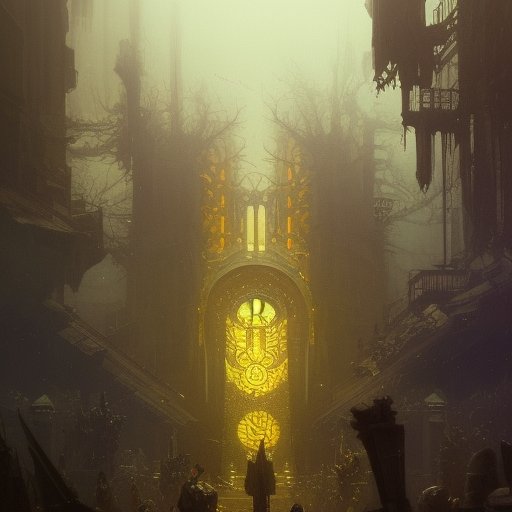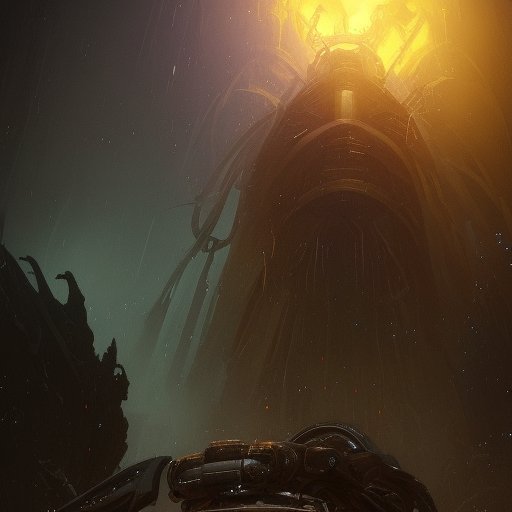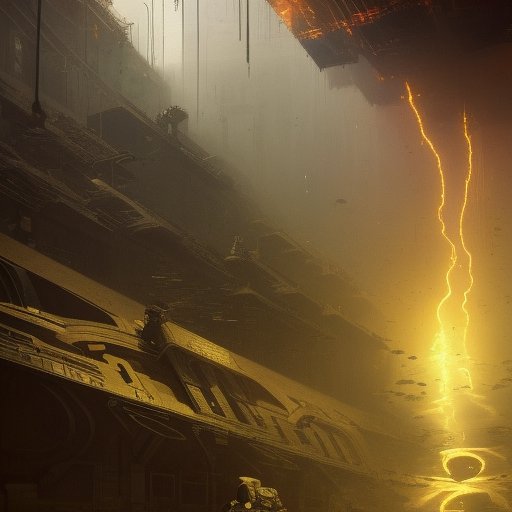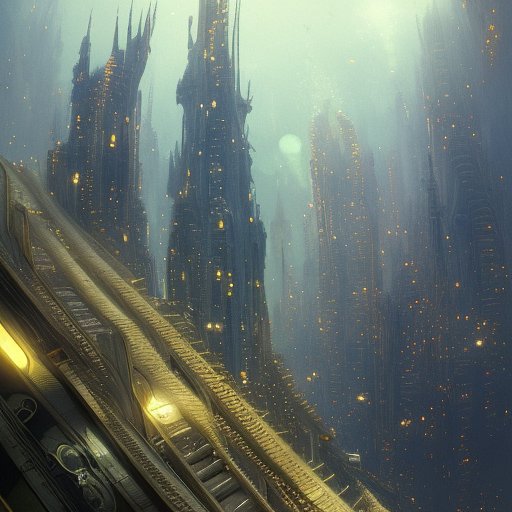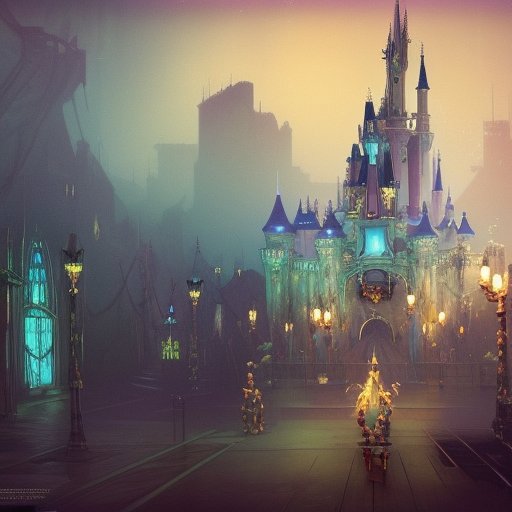
The laws of physics have fooled us all along. Is time just an illusion created by our brains? Can particles be in multiple places at once? Black holes seem to break physics. What happens at the end of the universe? Could we exist in parallel universes? Despite our best efforts, understanding might just be another trick. Join me in exploring these mysteries of the universe, for even science fiction has nothing on reality.
I. Introduction
Greetings, fellow space traveler! Have you ever stopped and truly pondered the laws of physics? Have you ever considered that the very foundation upon which we understand our universe might just be a mirage?

For centuries, we have relied upon the so-called “laws” of physics to explain the way the universe works. But what if these laws are just an illusion created by our limited understanding? What if the true nature of the universe is far beyond our comprehension?
As we delve into the mysteries of physics, we must keep an open mind. The universe is a complex and ever-changing entity, and what we believe to be true today may be proven false tomorrow. We must be willing to question everything we think we know and be unafraid to explore new ideas.
In this article, we will explore some of the most mind-bending aspects of physics and examine how they challenge our understanding of the universe. From the strange nature of time to the mysteries of the quantum world, we will take a journey into the unknown and question everything we thought we knew about our reality.
So buckle up and get ready for a wild ride through the twisting and turning corridors of the universe. Because in this journey, we might just discover that the laws of physics are just an illusion, or even better, we might uncover a whole new universe waiting to be explored.
II. The Mysterious Nature of Time
Let’s talk about time, my friend. Is it even real? Or is it just a fancy concept we’ve invented to help us understand the world around us?

One thing we do know is that time seems to be moving inexorably forward, always marching towards the future. But what if I were to tell you that time might just be an illusion created by our own minds?
Some scientists speculate that time might not be a concrete thing, but rather a side-effect of our brain’s processing power. They claim that time is just an invention of our brain to help us make sense of the world, much like the way our eyes create an image of the world around us.
This theory suggests that time might not be an inherent property of the universe, but instead something that we have created to help us navigate a complicated and ever-changing world. In this view, the past and the future might be just as real as the present, and time might be a mere illusion.
But if time truly doesn’t exist, why do we experience it in such a consistent and predictable way? The answer might lie in the nature of the mind itself. The brain has evolved to process information in a linear fashion, and so we experience the world as a series of cause-and-effect events.
At the end of the day, the mysterious nature of time remains one of the biggest puzzles in physics. Whether it is a fundamental property of the universe or merely a human invention, we may never know. But one thing is for sure, the concept of time continues to baffle and intrigue scientists and laypeople alike, and we will undoubtedly never tire of pondering its mysteries.
III. The Quantum World
Ah, the strange and wondrous world of quantum mechanics! As we delve deeper into the mysteries of the universe, we must confront the bizarre and seemingly impossible nature of the quantum world. In this realm, particles can exist in two places at once, and the act of observing them can alter their very behavior. But is all of this just some elaborate trick or illusion?
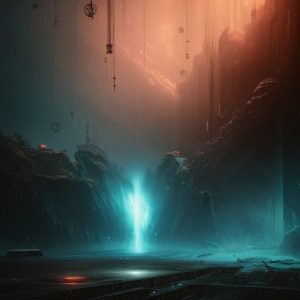
In the world of quantum mechanics, particles can exist in multiple states at the same time. This is known as superposition, and it challenges our understanding of the way the universe works. We have been taught that objects can only exist in one place at a time, but the quantum world tells a different story.
Furthermore, when we try to observe particles in the quantum world, we run into even more strange phenomena. The act of observation alters the behavior of the particle, causing it to collapse into a single state. This is known as wave-particle duality, and it suggests that our very observation of the universe can change the nature of reality.
But how can this be? How can particles exist in two places at once and then collapse into a single state upon observation? Some scientists have suggested that this is simply a limitation of our understanding of the universe. Perhaps there are more dimensions at play than we currently know, and particles are able to move between them at will.
Still, others suggest that this strange behavior is simply an illusion created by the measurement process itself. The act of observing particles changes them, so maybe what we think we’re seeing isn’t the true behavior of the particle at all.
Whatever the case may be, the quantum world remains a mysterious and fascinating area of study. As we continue to probe the depths of the universe, we must be willing to question everything we know and embrace the mysteries that lie ahead.
IV. Black Holes
Black holes. Something so fascinating yet so fearsome. They are the stuff of science fiction, yet they exist in real life. But how do they fit into the laws of physics that we hold so dearly?
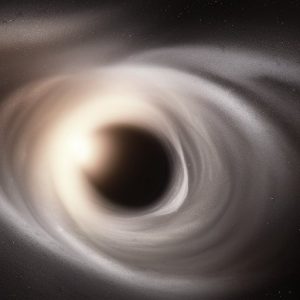
Firstly, let’s talk about gravity. We know that gravity is the force that keeps us anchored to the planet and governs the movement of planets around stars. But what if gravity was so powerful that it could trap even light? That’s what happens inside a black hole. The gravitational pull is so strong that nothing, not even light, can escape its grasp.
But that’s not all. Black holes also seem to break the laws of thermodynamics. The second law of thermodynamics states that the entropy of a closed system will always increase over time. But in the case of black holes, the opposite seems to happen. As matter falls into a black hole, the entropy seems to decrease. This has led to some wild theories about the nature of the universe and the role of black holes in it.
Some scientists even suggest that black holes could be a gateway to a parallel universe or even time travel. Others believe that black holes could be the key to unlocking the ultimate secrets of the universe.
Whatever the case may be, one thing is clear – black holes are a terrifying enigma that continues to mystify us. As we continue to explore the universe, we must keep an open mind and be willing to challenge our understanding of the laws of physics. Only then will we be able to uncover the mysteries that lie at the heart of the universe.
V. The End of the Universe
Picture this: the year is 2450, and humanity has colonized multiple habitable planets across the universe. We have traveled far and wide, explored new worlds, and made amazing discoveries. But as we look out into the vast expanse of space, we can’t help but wonder about the ultimate fate of our universe.
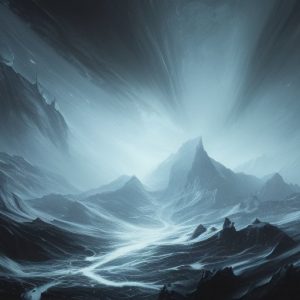
Scientists have long speculated that the universe will end in one of two ways: either in a Big Crunch, where the universe collapses in on itself, or a Big Freeze, where the expansion of the universe slows and eventually comes to a halt. But what if these possibilities are merely a sliver of the true nature of the universe’s end?
As we peer deeper into the cosmos, we begin to observe strange phenomena that cannot be easily explained. Some distant galaxies appear to be moving too fast to be solely influenced by gravity. Others seem to be emitting more energy than they could possibly produce.
Could these anomalies be clues to something more profound? Something that we can’t even fathom with our limited understanding of the universe? Perhaps, instead of a Big Crunch or a Big Freeze, the universe will end in a way that we can’t even imagine.
One theory suggests that the universe could end in a way that completely defies our current understanding of physics, such as a “Big Rip” scenario. This would involve an exponential increase in the expansion of the universe, causing everything from galaxies to atoms to be torn apart into oblivion.
Another possibility is the idea of a “Vacuum Decay,” where the universe is suddenly replaced by a new universe with different physical laws, effectively wiping out everything that we know and understand.
As daunting as these possibilities may seem, they also carry the potential for great discovery. Imagine being the first to witness the end of the universe, to observe something so mind-bending that it challenges our very perception of reality. The true end of the universe may be beyond our wildest dreams, but the journey towards uncovering it could be equally as exciting.
VI. The Multiverse
The idea of parallel universes might seem like something straight out of a science fiction novel, but could it be more than just pure fantasy? Recent advancements in physics suggest that the notion of a multiverse may not be as far-fetched as we once believed.

Think about this – what if every decision we make, every choice we choose not to make, creates a new universe? What if there are an infinite number of universes, each with its version of reality? This concept is called the “Many Worlds” interpretation of quantum mechanics, and it suggests that our reality may be just one of many possible outcomes.
But is there any evidence to support the idea of multiple universes? Some researchers have pointed to cosmic microwave background radiation, which is believed to be the afterglow of the Big Bang. They suggest that the patterns in this radiation may be evidence of collisions between other universes.
Moreover, the existence of parallel universes could explain some of the mysteries of physics, such as dark matter and dark energy. These concepts would make a lot more sense if our universe was just one of many in a larger multiverse.
But what about the idea that there could be parallel versions of ourselves in different universes? Admittedly, this is the most intriguing aspect of the multiverse theory. If true, it would mean that there could be infinite versions of ourselves making different choices and living out different lives. It also means that there could be versions of ourselves that have achieved things we could only dream of, or worse, made choices we would never make.
VII. Conclusion
As we reach the end of our journey through the mysteries of physics, it’s clear that our understanding of the universe is still full of unknowns. The more we discover, the more questions we have, and we may never truly grasp the complexities of the universe.
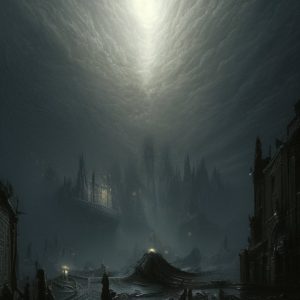
And yet, we continue to explore, to seek out new information, and to push the boundaries of what we thought was possible. Perhaps the very concept of understanding is just another illusion, but that doesn’t mean our efforts are in vain.
We can still find wonder and joy in the mysteries of the universe, even if we never fully understand them. The pursuit of knowledge is its own reward, and the journey is often more important than the destination.
So let us continue to explore, to ask questions, and to challenge what we think we know. Who knows what wonders lie just beyond the horizon, waiting for us to discover them?
And who knows, perhaps in the end, we may discover that the laws of physics are indeed an illusion, but one that has brought us closer together and given us a greater appreciation for the vastness and complexity of the universe.
